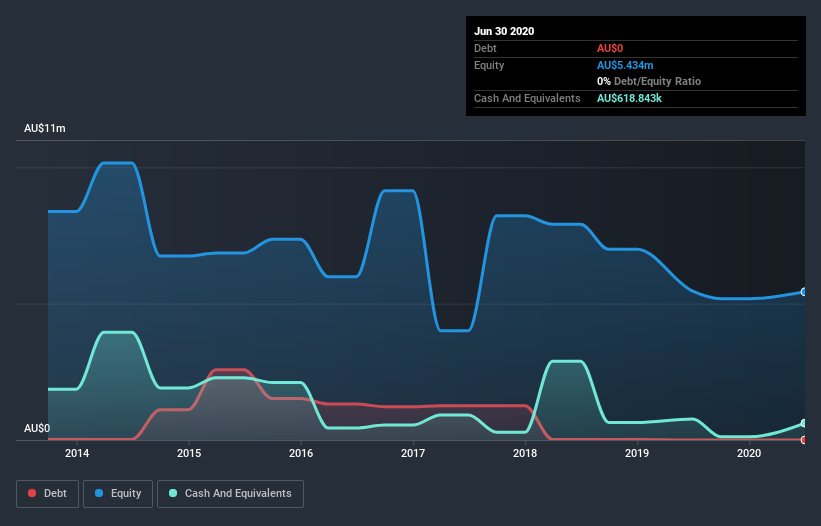Invion (ASX:IVX) Is In A Strong Position To Grow Its Business

We can readily understand why investors are attracted to unprofitable companies. For example, although software-as-a-service business Salesforce.com lost money for years while it grew recurring revenue, if you held shares since 2005, you'd have done very well indeed. Nonetheless, only a fool would ignore the risk that a loss making company burns through its cash too quickly.
Given this risk, we thought we'd take a look at whether Invion (ASX:IVX) shareholders should be worried about its cash burn. In this report, we will consider the company's annual negative free cash flow, henceforth referring to it as the 'cash burn'. The first step is to compare its cash burn with its cash reserves, to give us its 'cash runway'.
View our latest analysis for Invion
When Might Invion Run Out Of Money?
A cash runway is defined as the length of time it would take a company to run out of money if it kept spending at its current rate of cash burn. When Invion last reported its balance sheet in June 2020, it had zero debt and cash worth AU$619k. Importantly, its cash burn was AU$152k over the trailing twelve months. Therefore, from June 2020 it had 4.1 years of cash runway. A runway of this length affords the company the time and space it needs to develop the business. You can see how its cash balance has changed over time in the image below.
How Well Is Invion Growing?
Given our focus on Invion's cash burn, we're delighted to see that it reduced its cash burn by a nifty 93%. Unfortunately, however, operating revenue dropped 10% during the same time frame. We think it is growing rather well, upon reflection. Of course, we've only taken a quick look at the stock's growth metrics, here. You can take a look at how Invion has developed its business over time by checking this visualization of its revenue and earnings history.
Can Invion Raise More Cash Easily?
There's no doubt Invion seems to be in a fairly good position, when it comes to managing its cash burn, but even if it's only hypothetical, it's always worth asking how easily it could raise more money to fund growth. Issuing new shares, or taking on debt, are the most common ways for a listed company to raise more money for its business. One of the main advantages held by publicly listed companies is that they can sell shares to investors to raise cash and fund growth. By comparing a company's annual cash burn to its total market capitalisation, we can estimate roughly how many shares it would have to issue in order to run the company for another year (at the same burn rate).
Since it has a market capitalisation of AU$61m, Invion's AU$152k in cash burn equates to about 0.3% of its market value. That means it could easily issue a few shares to fund more growth, and might well be in a position to borrow cheaply.
Is Invion's Cash Burn A Worry?
It may already be apparent to you that we're relatively comfortable with the way Invion is burning through its cash. For example, we think its cash burn reduction suggests that the company is on a good path. Although its falling revenue does give us reason for pause, the other metrics we discussed in this article form a positive picture overall. Looking at all the measures in this article, together, we're not worried about its rate of cash burn, which seems to be under control. Taking an in-depth view of risks, we've identified 3 warning signs for Invion that you should be aware of before investing.
If you would prefer to check out another company with better fundamentals, then do not miss this free list of interesting companies, that have HIGH return on equity and low debt or this list of stocks which are all forecast to grow.
This article by Simply Wall St is general in nature. It does not constitute a recommendation to buy or sell any stock, and does not take account of your objectives, or your financial situation. We aim to bring you long-term focused analysis driven by fundamental data. Note that our analysis may not factor in the latest price-sensitive company announcements or qualitative material. Simply Wall St has no position in any stocks mentioned.
Have feedback on this article? Concerned about the content? Get in touch with us directly. Alternatively, email editorial-team@simplywallst.com.

 Yahoo Sports
Yahoo Sports 
